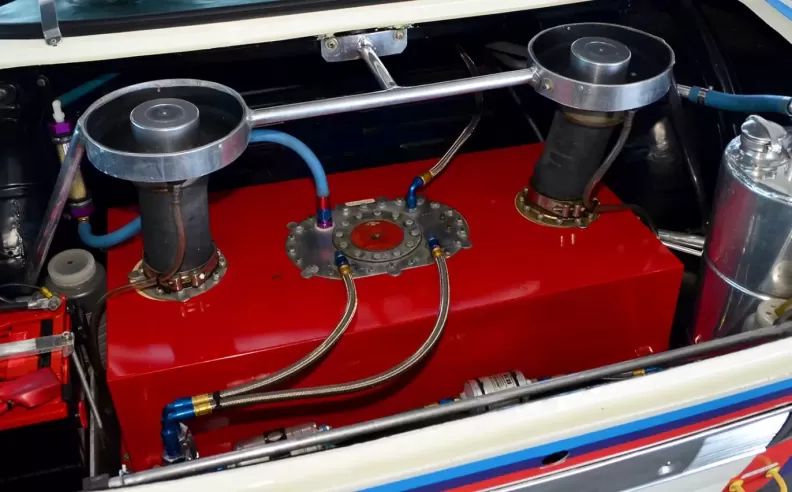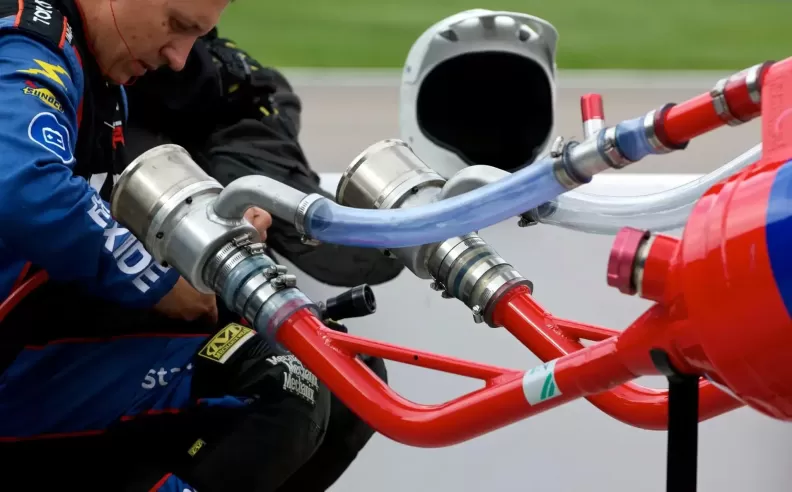
In the world of motorsports, the quest for speed and performance is a never-ending pursuit. Engineers and drivers constantly push the boundaries of technology to gain that extra edge on the track. One crucial factor in achieving blistering speeds lies in the fuel used by race cars. Special fuels, carefully formulated to meet the rigorous demands of motorsports, play a pivotal role in enhancing the performance of these high-octane machines. This article delves into the reasons why race cars use special fuel and the science behind their formulation.

Race cars differ significantly from their street-legal counterparts. They are purpose-built machines designed for speed, agility, and precision, with powerful engines and aerodynamic features that allow them to reach astonishing velocities. To maximize their potential, these high-performance engines require a fuel that can deliver the right blend of power, efficiency, and reliability.
Special fuel offers several benefits that traditional gasoline cannot match:
Increased Octane Rating: Octane rating measures a fuel's resistance to knocking or pre-ignition. Higher compression ratios and turbocharging are common features in race car engines, which can lead to increased knock tendencies. Special fuels boast higher octane ratings, preventing knock and allowing engines to run at optimal performance without the risk of engine damage.
Enhanced Energy Density: Special fuels often have a higher energy density than regular gasoline, meaning they can release more energy during combustion. This results in more power production and better acceleration, two vital factors in motorsports.
Controlled Vaporization: Special fuels are formulated to vaporize at specific temperatures, optimizing fuel delivery and combustion. This controlled vaporization ensures consistent power output across varying engine operating conditions, giving drivers the confidence to push their machines to the limit.
Cleaner Burning: Motorsports face increasing pressure to reduce environmental impact. Special fuels are designed to burn cleaner, emitting fewer harmful pollutants and particulates, thus making them more environmentally friendly compared to standard gasoline.

Creating special fuel for racing is a complex process that requires a deep understanding of combustion dynamics and the specific requirements of high-performance engines. Manufacturers carefully engineer these fuels with a focus on the following aspects:
Refining and Blending: Special fuels are often derived from high-quality crude oil or other advanced feedstocks. The refining process ensures the removal of impurities and contaminants that could hinder performance. Blending various components, such as aromatics and isomers, allows fuel manufacturers to fine-tune the fuel's characteristics.
Octane Boosters: To achieve higher octane ratings, fuel companies incorporate octane boosters into the formulation. These additives, such as toluene or ethanol, enhance the fuel's resistance to knock and allow engines to operate at higher compression ratios, thereby extracting more power.
Oxygenation: Adding oxygenates like ethanol or methanol to special fuels can enhance combustion efficiency. These oxygenates provide additional oxygen molecules during combustion, leading to more complete fuel combustion and reduced emissions.
Consistency and Quality Control: Racing is a sport of precision, and special fuel must be consistent in its properties to ensure predictable engine performance. Manufacturers employ stringent quality control measures to maintain fuel consistency, ensuring that each batch meets strict standards.
As technology continues to advance, the science behind special fuels will evolve, resulting in even more powerful, efficient, and environmentally conscious options. While the thrill of racing will remain at the heart of motorsports, it is the continuous pursuit of innovation in fuels and other aspects of the sport that will keep it at the cutting edge of automotive engineering.

Wael is an automotive content writer specializes in creating written content for Motor 283. Producing a wide range of content, including blog posts, articles, product descriptions, reviews, and technical guides related to cars, trucks, motorcycles, and other vehicles, with an unprecedented passion for cars, and motorcycles.